Life
Chiara Luce Badano, a radiant life
Chiara Badano, was born in Sassello on October 29, 1971. Long awaited,
she is the only child, and receives a solid Christian education from her
family. Rich with talents, beautiful and sportive, she has many
friends.
She becomes a member of the Focolare Movement founded by Chiara Lubich at the age of nine years old; there she discovers God as Love, and makes Him the Ideal of her life.
At 17 years old, struck by a terrible tumor, she faces it by entrusting herself to God completely, even in the most difficult moments; to those who come near her she transmits serenity and joy.
In a climate of “extraordinary normality”, where Heaven and Earth seem to meet, Chiara feels that the end is near and she prepares herself, as she would for a wedding. She died at dawn on October 7th, 1990; just moments prior she had said goodbye to her mother saying: “Be happy, because I am!”.
Soon, her story spread around the world.
Chiara “Luce” Badano was proclaimed Blessed in 2010.
A few days later, this is how Pope Benedict XVI would remember her:
(…)I think you all know that on Saturday September 25th, in Rome, an Italian girl named Chiara, Chiara Badano, was beatified. I invite you to get to know her: her life was short, but it’s a wonderful message. Chiara was born in 1971 and died in 1990, because of an incurable illness. Nineteen years full of life, of love, of faith. Two years, the last ones, also filled with pain and suffering, but always in love and light, a light that shone around her, and that came from within: from her heart filled with God! How can this be? How can a girl of 17, 18 years live a suffering like this, without any kind of human hope, spreading love, serenity, peace, faith? Obviously, this is a grace from God, but this grace was also prepared and accompanied by human collaboration: the collaboration of Chiara herself, certainly, but also of her parents and her friends (…)
Childhood
Chiara Badano was born in Savona on October 29, 1971.
She lived in a small Ligurian town called Sassello.
Her mother Maria Teresa and her father Ruggero remember:
We got married when we were 26 and our greatest desire was to have children, but we had to wait 11 years. Ruggero could not conceive a marriage without children, and when he was with friends who had children, he suffered a lot; but he continued to pray, even on the truck during his long work trips. Once again he asked for the grace in a shrine of our diocese and so it happened. With her birth, we immediately felt in our hearts that Chiara was not only our daughter, but first she was God’s child and, as such, we had to raise her respecting her freedom. With her arrival, we felt the grace of the sacrament of marriage more deeply: this daughter completed our union and increased the love between us.
Chiara was born in a simple family. She was her parents’ only child and from them she received a solid Christian education, based more on good example and love than on prohibitions or reprimands. Her personality was generous, outgoing, and gentle at the same time.
Maria Teresa, her mother, tells a tiny anecdote:
Chiara had many toys. One day, while playing in her bedroom, I said:
“You have so many toys…” And she replied: “Yes”. Then i suggested she
give some of them to the poor children. To that she said: “No, they’re
mine!” So I return to the kitchen, but soon I hear her little voice:
“This one yes, this one no… this…” Intrigued, I peek into her room:
Chiara was dividing her toys in two very distinct piles and then asked
me for a shopping bag. I brought it to her and she began to fill it.
“Chiara, but those are new!” I tell her. She said: “I can’t give old
toys to poor children!”.
She was only four years old.
Chiara grows up to be beautiful and healthy, deeply loved by her parents, and in particular by her maternal grandparents, who seemed to be reborn thanks to this great joy.
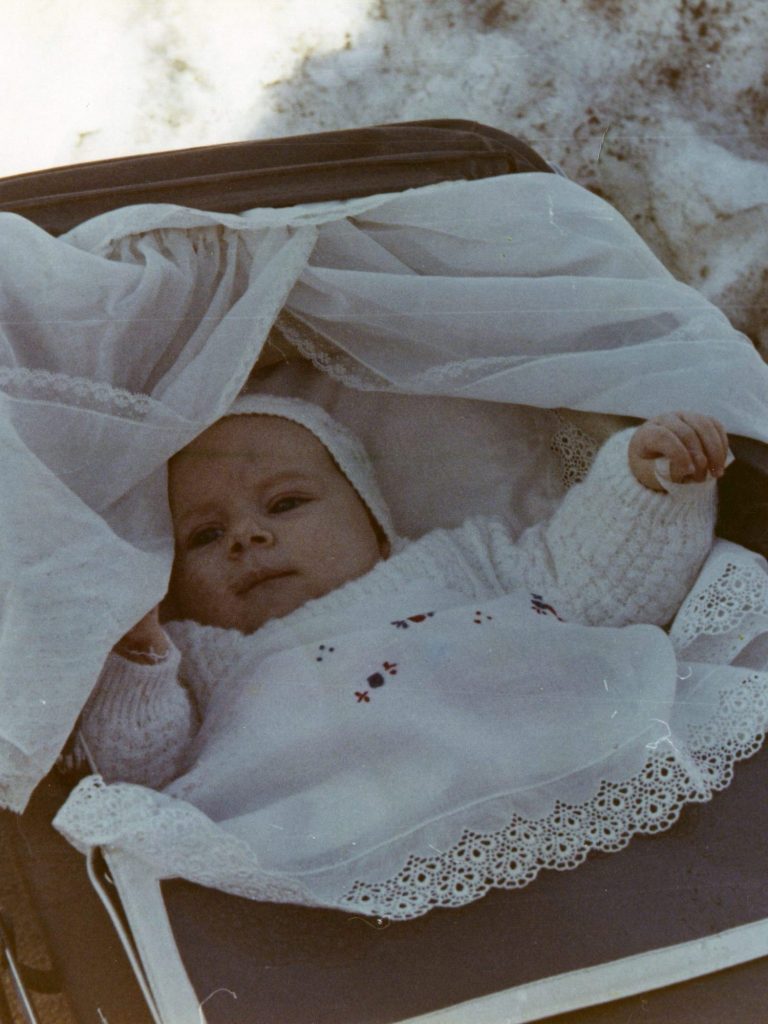
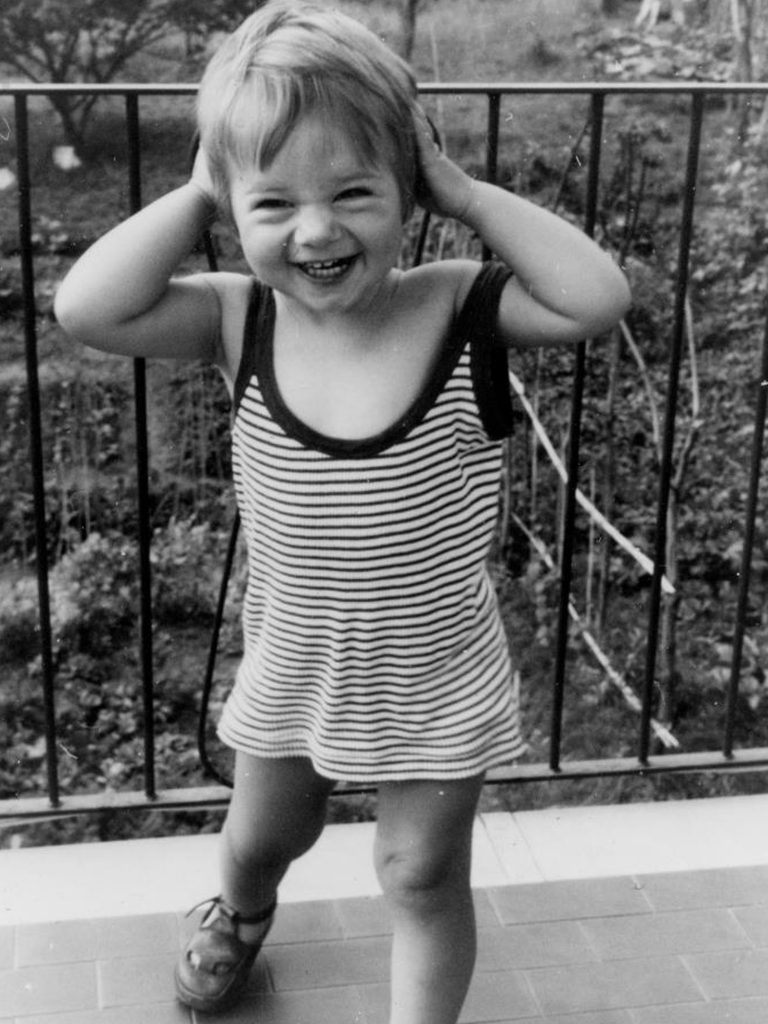
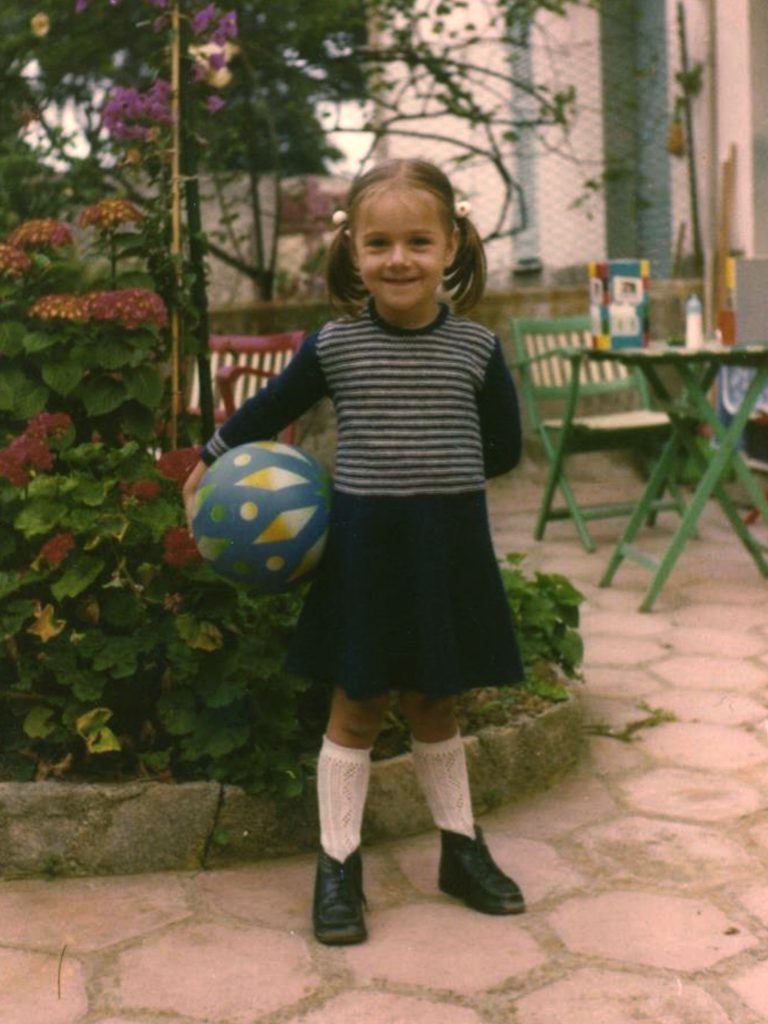
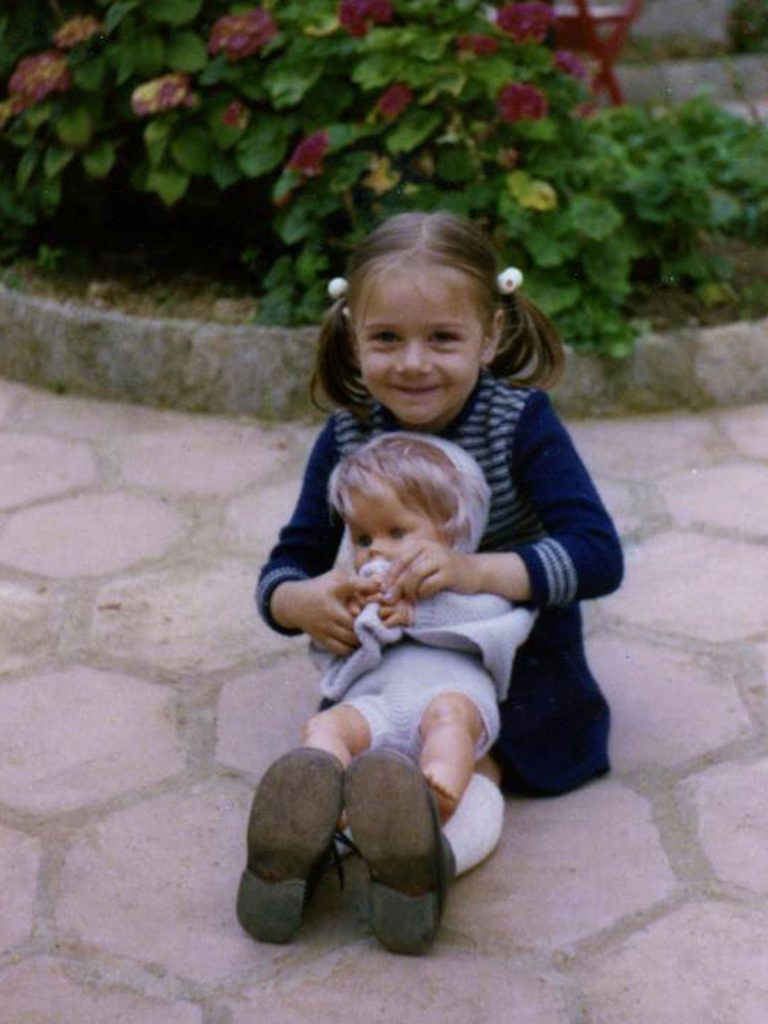
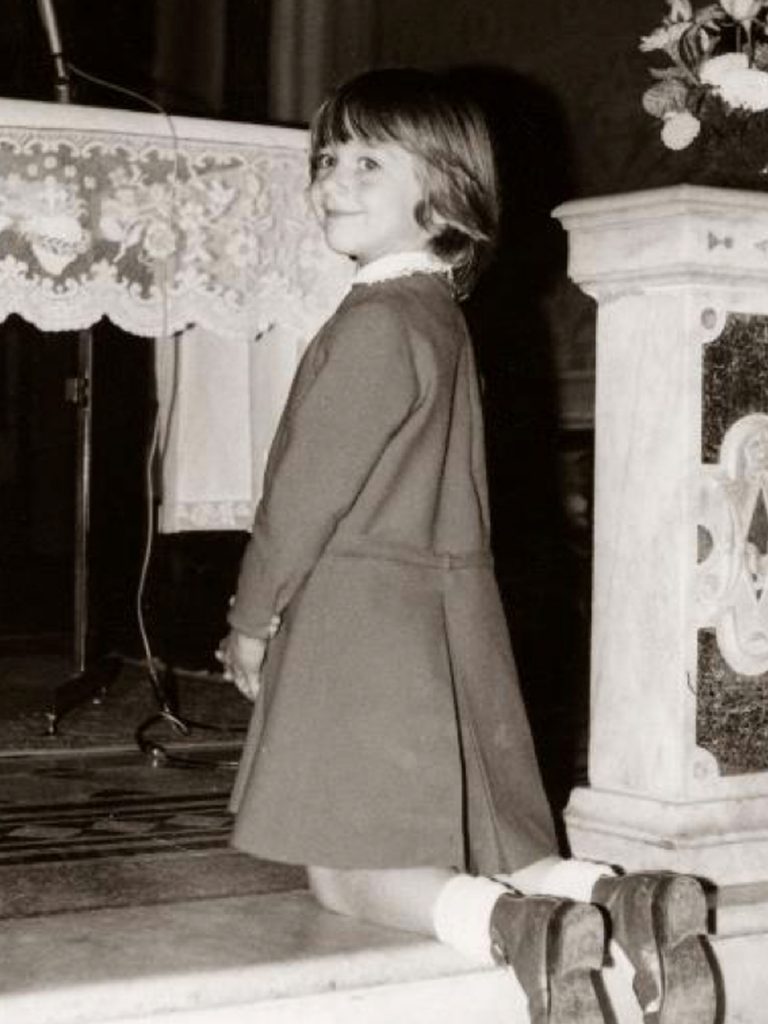
When she was about nine and a half years old, she had an encounter which turned out to be crucial for her life: she met the Focolare Movement, founded by Chiara Lubich.
With her parents, in the spring of 1981 Chiara participated in the
Family Fest, a a major international meeting held at the PalaEur in
Rome: the discovery that “God loves us immensely”, will profoundly
affect her relationships with her family, but also those with her
friends and classmates.
“We started our adventure, with the Gospel under our arms we will do great things”
journey as gen (the youthful expression of the Focolare Movement).
Chiara: both to direct her first important choices to solve daily large
and small problems discovering the infinite wonders of the Gospel
brought to life.
members of the Movement, by its universality, and the effort of its
members to make the evangelical teachings concrete.
Some time later, she wrote:
I have rediscovered the Gospel.., I was not an authentic Christian because I did not live it fully. I won’t and cannot remain illiterate of such an extraordinary message. Now I want to make this wonderful book the only goal of my life.
On June 17, 1983, at her first Gen3 Congress, together with many other girls from around the world, she grabbed a pen and paper and wrote to Chiara Lubich:
This was the first Congress for me and, I must say, it was a wonderful experience. I have rediscovered Jesus Forsaken in a special way. I felt him in every neighbor that passes me by.
Chicca recalls:
I think that a video of Chiara Lubich that was shown to us when we were still little kids was a turning point for us. At a certain point Chiara Lubich opened her heart as she answered a question from some of the Gen. She confided her secret to us: Jesus Forsaken. And she invited everyone who wanted to choose Him as the ‘first spouse’ of their lives, to raise their hands. And Chiaretta did it, like me and many others—right away, with a momentum that I can still feel today.
Adolescence
Beyond her remarkable spiritual sensitivity, Chiara was a girl like any other: cheerful, lively, outgoing and reserved all at the same time. A true sports lover: she skated, and played tennis; she loved the mountains, but at the beach she would ‘explode’.
She had many friends in Sassello, with whom she often spent time at ‘Bar
Gina’. Many would confide in her their doubts and struggles, as they
found in her an extraordinary capability to listen, sensitivity, and a
profoundness which was truly unusual for an adolescent.
To her mother, who asked her if she ever speaks of God to them, Chiara
firmly responds: “I must not talk about Jesus, I give them Jesus.” “And
how do you do that?” Asks Maria Teresa, and Chiara: “First of all, by
listening, then with the way I dress, but especially with my way of
loving”.
In this path of human and spiritual maturity, Chiara is joined by other
young people: in particular by those of the New Generation of the
Focolare Movement (nicknamed ‘Gen’ by the founder). There are several
opportunities to meet with them in an atmosphere of profound unity, in
freedom and absolute respect in communicating their own life
experiences, progress and difficulties experienced in bringing the
Gospel love.
A relationship that grew with time: any excuse was good: phone calls, cards, parties, trips, spiritual depth meetings…
Maria Teresa says: “One day, returning from one of these meetings, Chiara came home without her watch. I asked her: “Have you lost your watch? No – she says – I put it in the basket for the communion of goods to be allocated to the poor”. I was amazed and I told her that we could not buy another one and calmly, she replied: “It doesn’t matter”, and didn’t think about it again. After a short time, her paternal grandfather, who wanted to give her a present, asked if she had a watch. Without giving any further explanation, she said no. Then he gave her the money, saying: “With this go and buy yourself a watch.” When he left, Chiara and I looked at each other and she said to me: “Mom, my watch has come back”. She was about 11 years old.
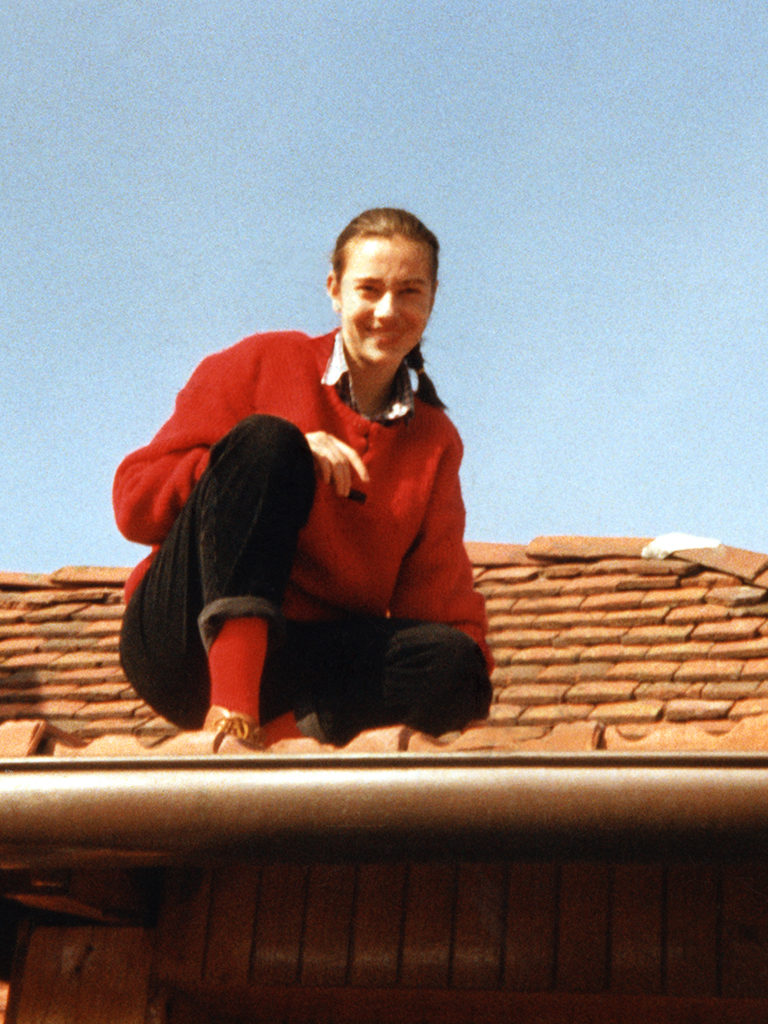
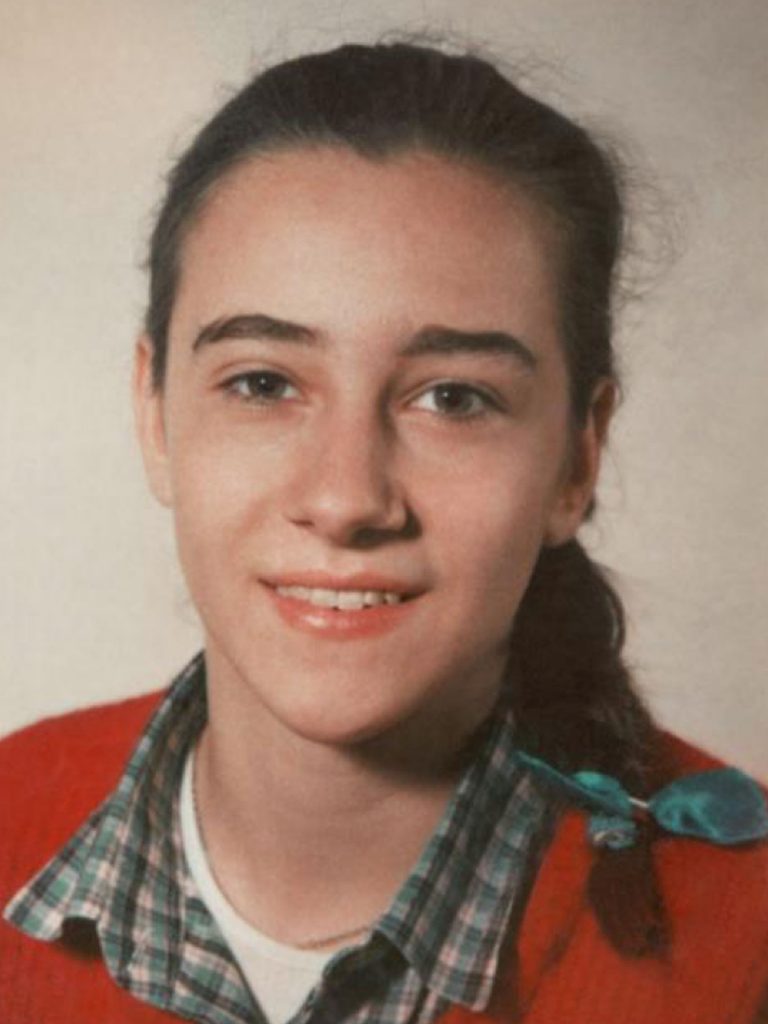
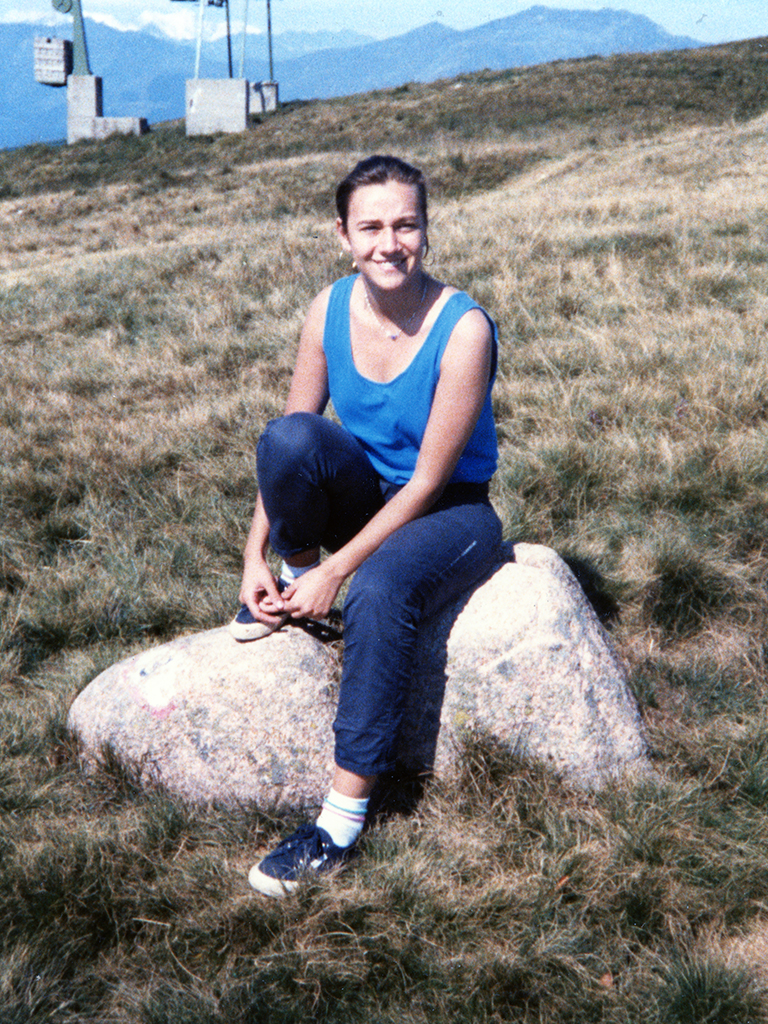
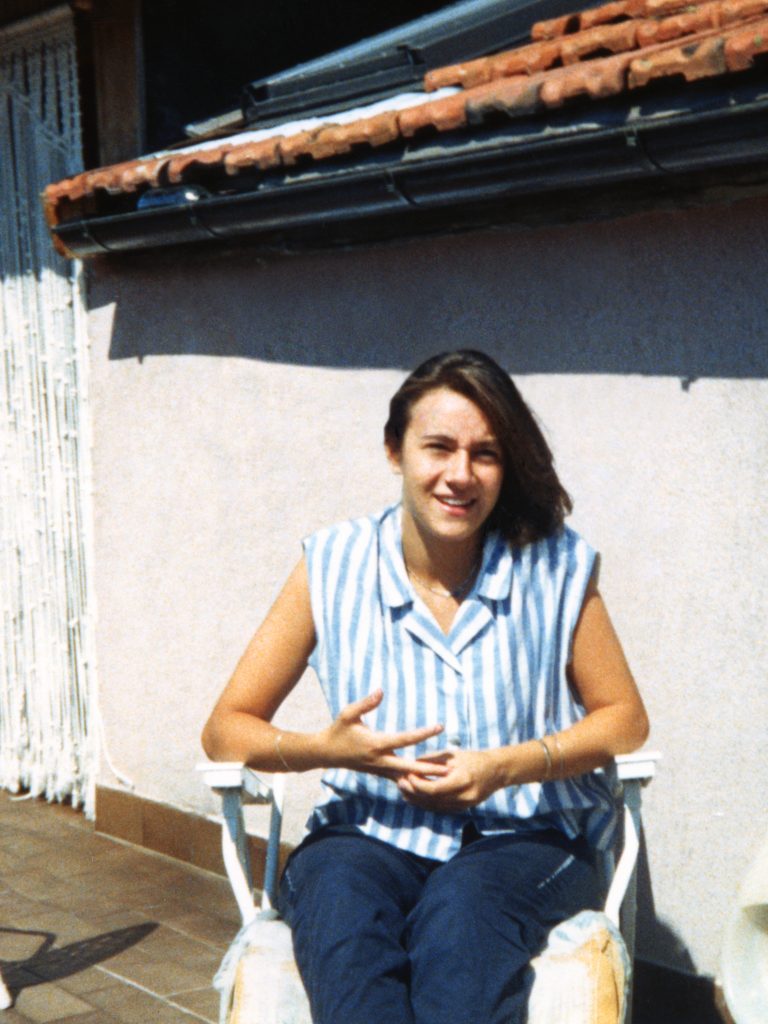
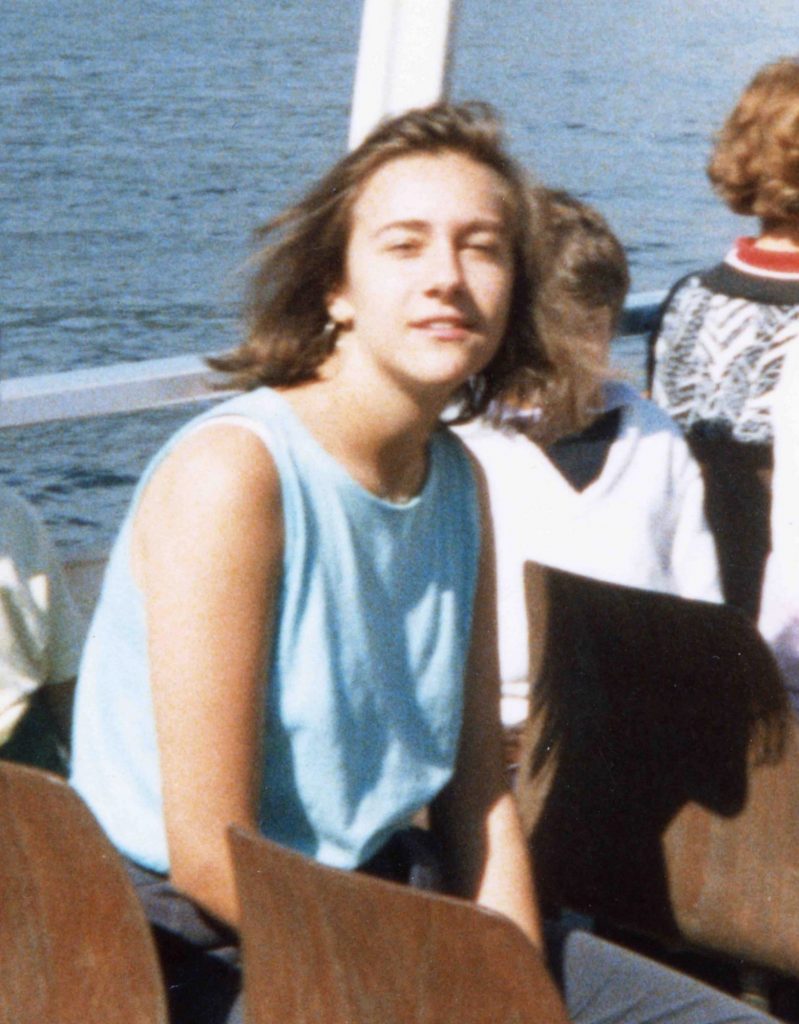
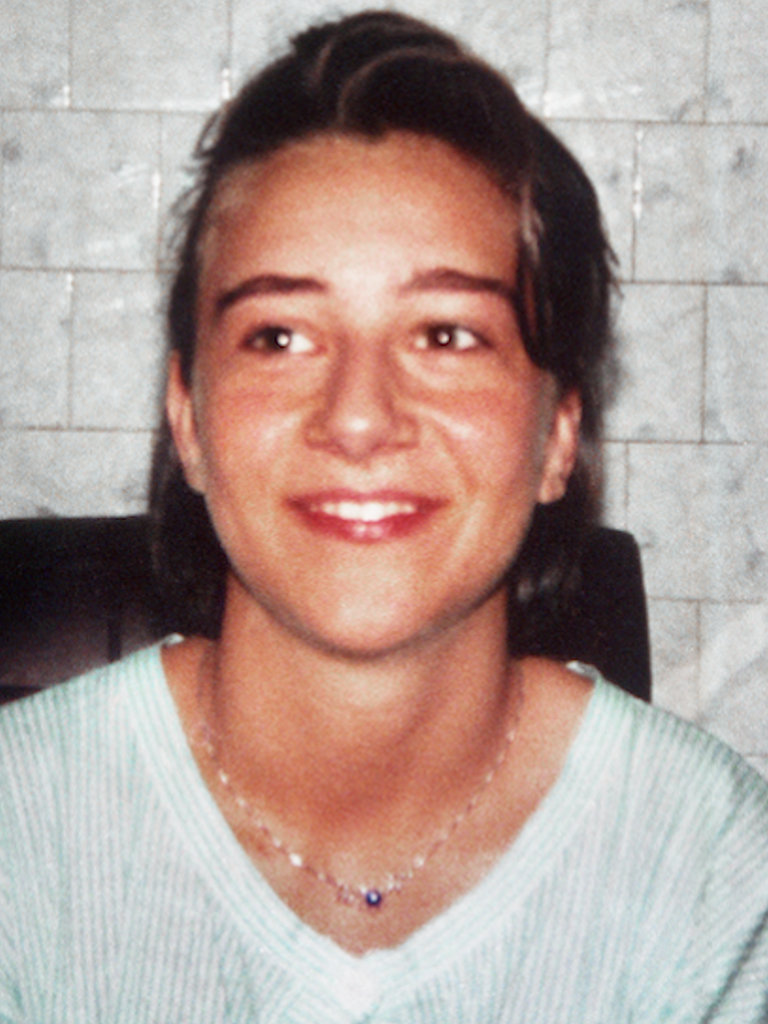
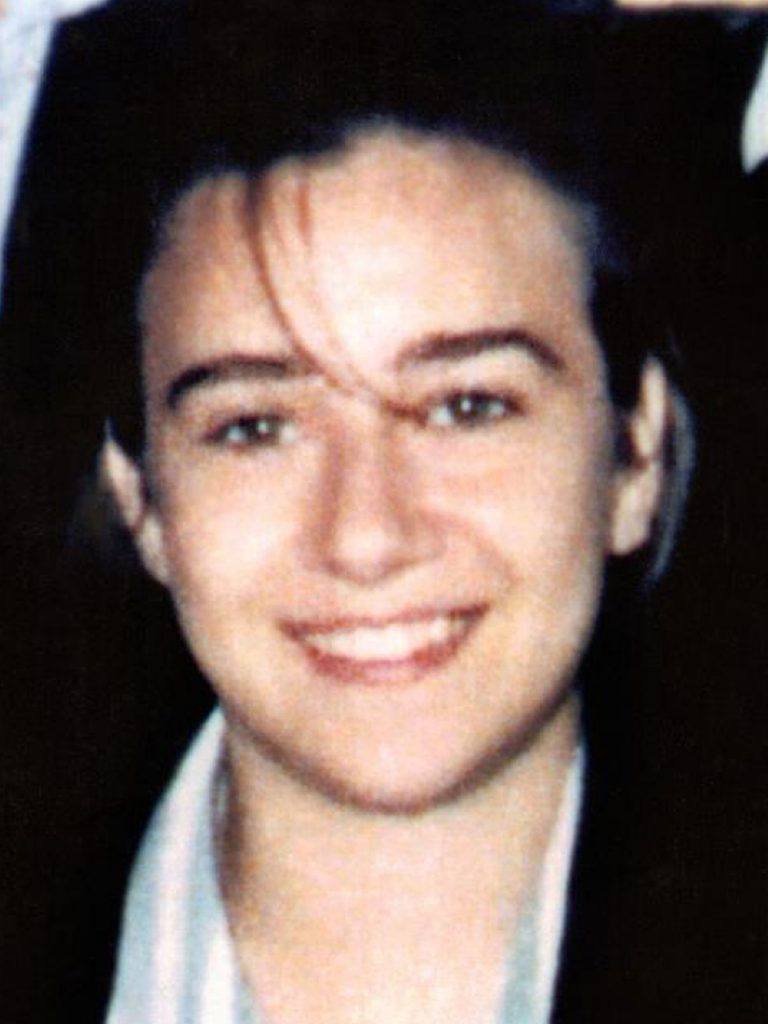
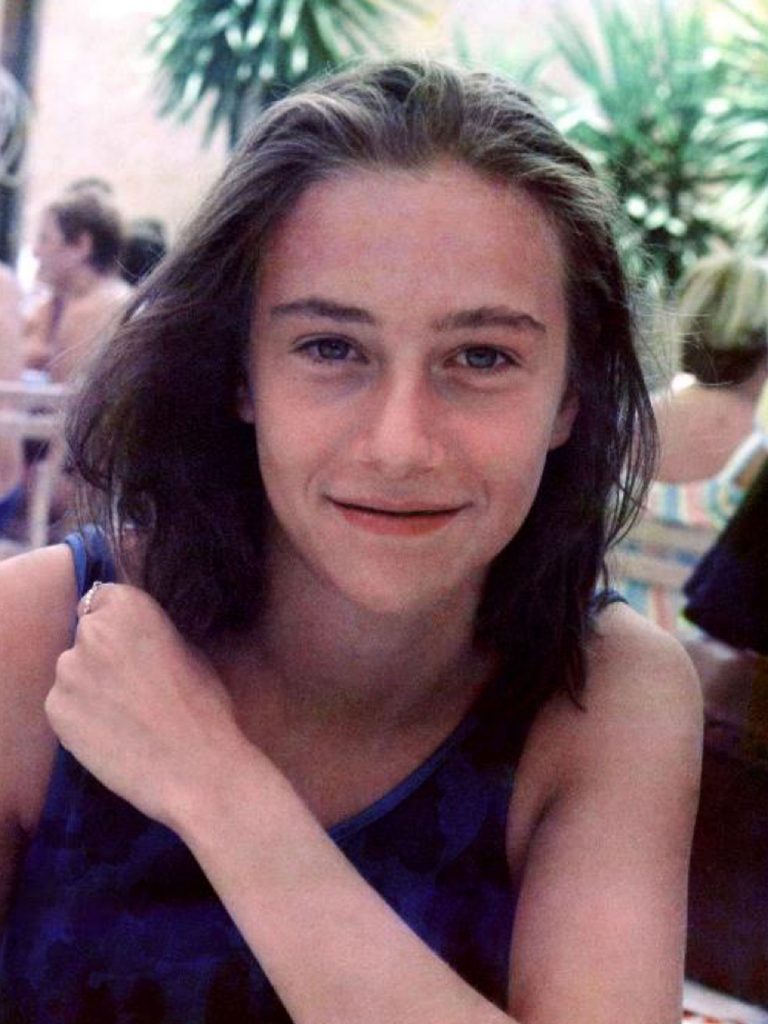
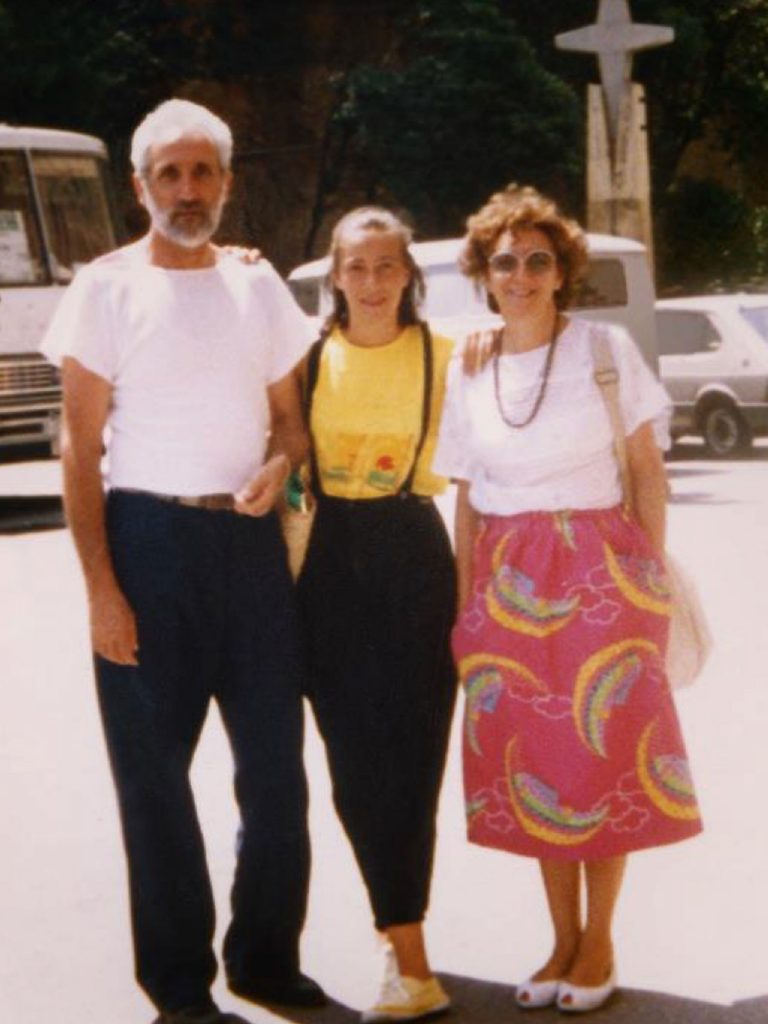
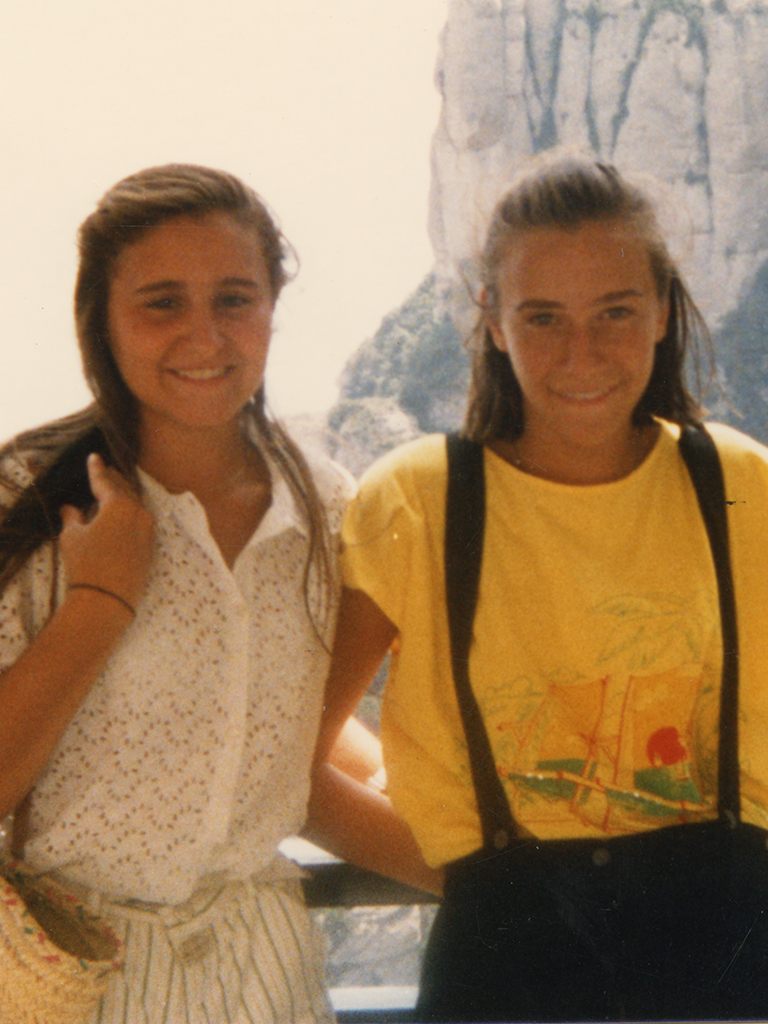
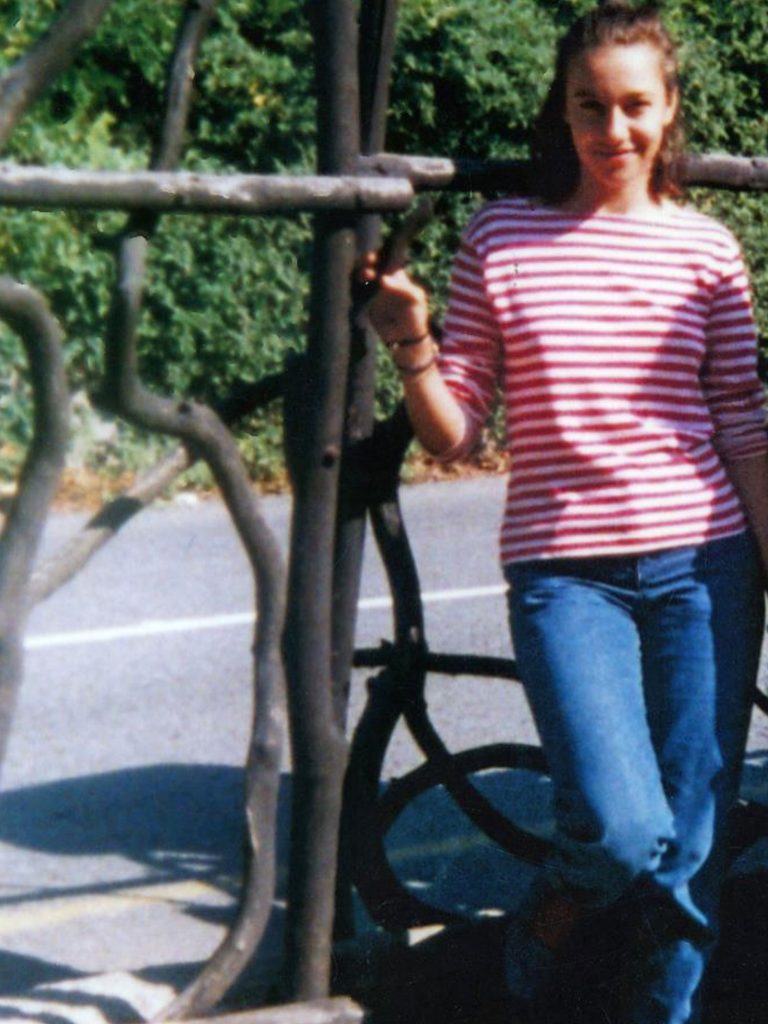

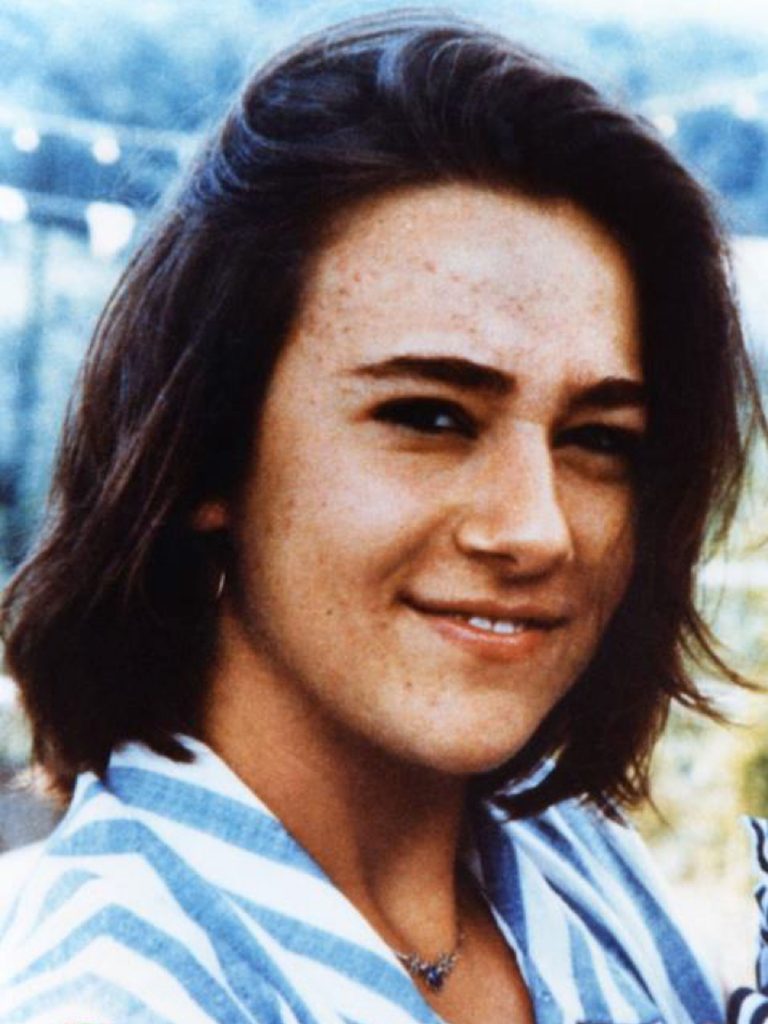
to the grandparents who need assistance; from those marginalized to the
homeless she meets on the way home from school.
At Christmas time, during a visit with her class at the Sassello
retirement home, Chiara is impressed by a tiny old lady with big eyes
and a beautiful smile: grandma Speranza.
“She often went to keep her company and help in practical things – her
mother still remembers – She would brush her hair, wash her face, adjust her bed… During these visits, grandma Speranza would tell her
fairytales, including the one of the chimney sweep she liked so much. I
wanted to meet her and the first thing she told me was: “You have a
daughter who is not of this world ….” Even my own mother, watching
Chiara, often repeated it to me…”.
Distinguished between rich and poor, those she liked and those she
didn’t, those who believed and those who didn’t. She became familiar
with gratification as well as failures, like many others. One thing that
caused her major suffering was her transfer from her beloved Sassello
to Savona, to attend the classic studies high school.
In ninth grade, her first great pain: a failure considered undeserved by
many because it resulted from misunderstandings with a teacher.
for a teenage love, that faded before it even blossomed. Always
projected towards those who were beside her or even passed her by,
Chiara always tried to turn pain into love. She didn’t always succeed,
so then she would say:
“I can always start over”.
Illness
What you don't expect
Summer 1988: at 17 years old, Chiara’s illness takes everyone by surprise.
Due to striking shoulder pain, she dropped the racket during a tennis
match with friends. At first the doctors thought it was a broken rib and
they prescribed injections. But the problem didn’t go away, and when
the doctors analyze the situation more closely, the verdict leaves
hardly any hope: osteogenic sarcoma with metastases.
In february 1989, Chiara underwent her first surgery in Turin.
Children’s hospital, the doctor informs Chiara of her illness.
Her mother would have wanted to go with her, but she was forced to stay
in bed at the house so generously made available during chemo treatments
by a family unknown to them until then, because of a sudden and
dangerous phlebitis.
La mamma ricorda:
“I was waiting for her, but minutes passed, and then became hours, until
I saw her coming back through the large picture window in my room: she
was walking very slowly, with her green coat, her hands in her pockets,
and her father right behind her. As soon as she opens the door, I asked
her: “How did it go, Chiara?”; but with a somber face, without looking
at me, she replied: “Don’t speak now – twice – don’t speak now”. And
she lets herself fall on the bed, just as she was.
That silence was terrible, there was so much I wanted to say to her. “You’ll see…maybe… you’re young…” but I felt that I needed to respect what she had asked me.
I watched her: her eyes were closed, but from the expression on her face I could see the struggle she was battling inside. She had said her Yes to God many times, but in happiness, now she had to say it in her greatest suffering, but she couldn’t do it. There was a small clock on the shelf above her bed. After twenty-five minutes, which to me seemed unending, she turned to me and said: “Mom, now you can talk, now you can talk…” I was thinking: “Jesus, Chiara has now said her yes, but how many times will she have to say it, and how many times will she fall?”. It took Chiara twenty-five minutes to say her yes, but she never turned back”.
After her first chemo sessions, she almost immediately lost the use of her legs. One day she asked Maria Teresa: “Mom, will I not walk again? I loved riding my bike so much…” And she answered: “Don’t worry, if Jesus took away your legs, he will give you wings”.
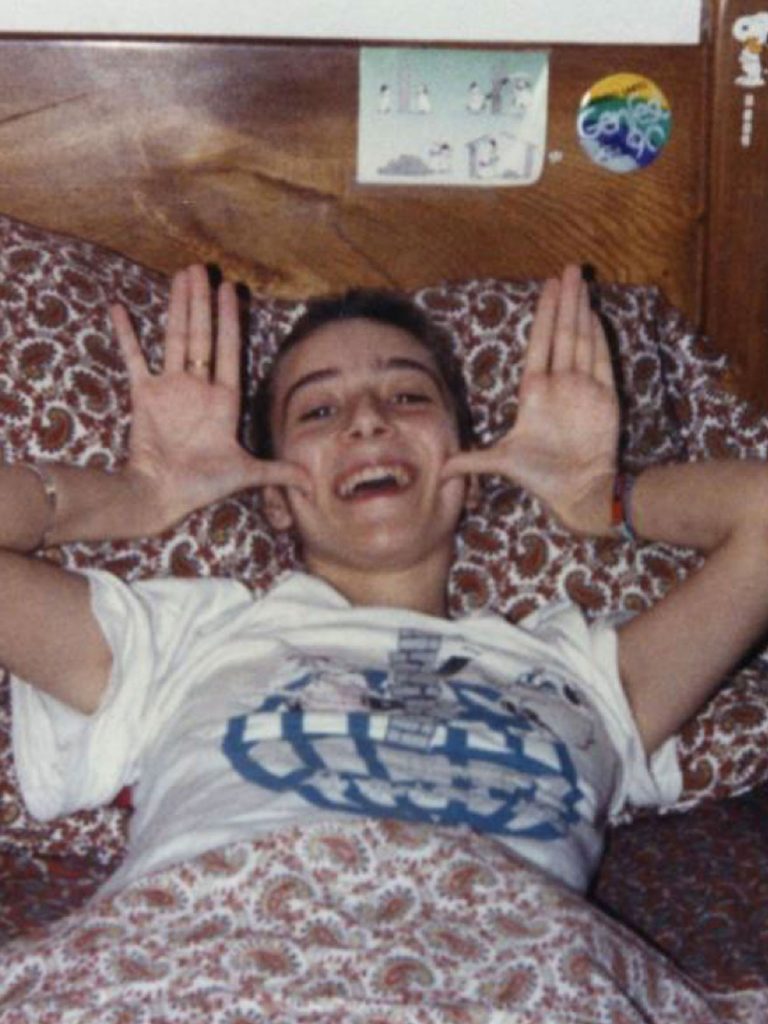
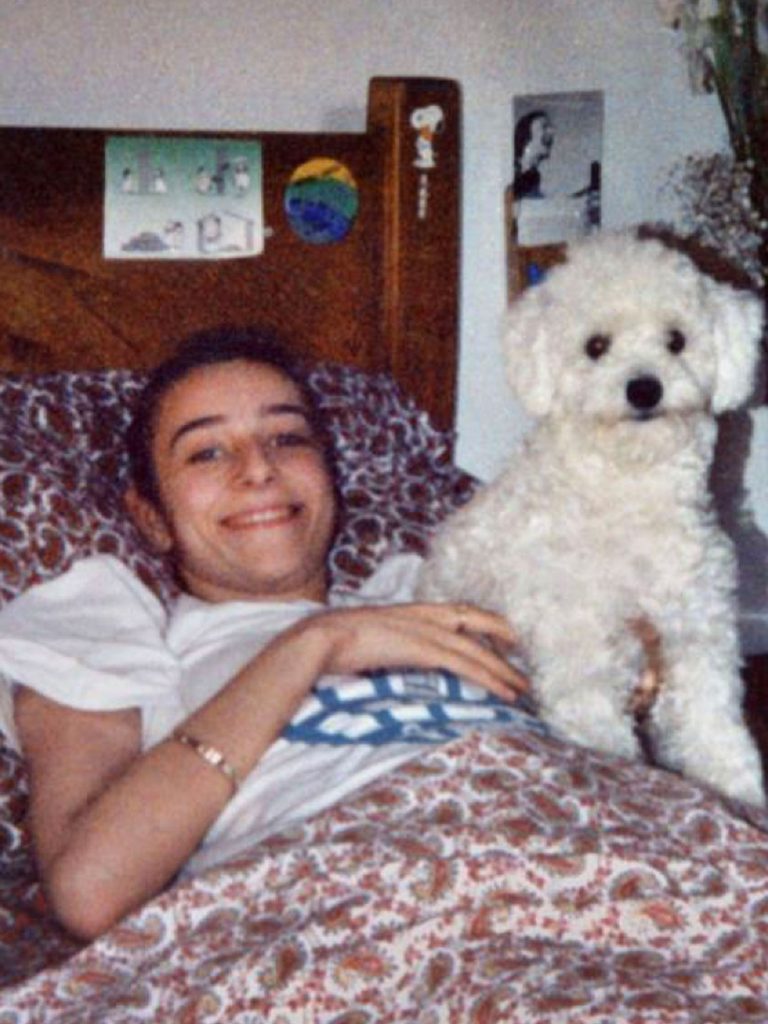
In the meantime, the feeling of death makes way and becomes more vivid:
“Mom, is it right to die at 17?”
she asked her one day. And Maria Teresa:
“I don’t know. All I know is that what matters is doing God’s will, if this is His plan for you”.
Soon after, Chiara suffers a severe hemorrhage. Her life is in danger and she asks her mother:
“Do you think this is a false alarm or will I go?”
And her mother:
“I don’t know, Chiara, it is on God’s time, but don’t worry, your
suitcase is ready, full of acts of love, and when the moment arrives,
Jesus will take you by the hand and will tell you: Come, now, let’s go!”
Chiara asks her not to let go of her hand, and her mother reassures her:
“Don’t worry, I will let go only when I will have felt that the Blessed Mother has taken it”.
Her friends take turns in prayer all night. The doctors are not sure
about whether to let her die or give her a transfusion; her parents are
lost, in the midst of this doubt, not able to understand what is best
for their daughter. Soon after, it was the doctors who decided to
continue the treatment. Chiara will live one more year. More months that
will prove decisive for her.
Although immobile, Chiara is always very active: the small phone in her
room becomes the essential instrument through which new life would
circulate, along with her soul’s intuitions, and communications of
feelings of closeness. In that period Chiara Lubich proposes to the
youth of the entire world a new international movement and in the
founding congress of the Youth for a United World, her words resonate
and leave their mark even the hospital where Chiara is confined to her
bed:
“That suffering (by Jesus on the cross), that pain to redeem the world, was necessary – said Chiara Lubich
– Our suffering is necessary to build a united world too (…) To live
for half measures is too little for a young person who has only one
life: something great is necessary… God is proposing something great
to you: it’s up to you to accept it”.
It is the experience that Chiara Luce is living; so she continues to
live and offer every new challenge making herself available in thousands
of ways. Thanks to the cable antenna that was mounted on her house, she
is able to follow the live broadcast of the Genfest (an event with
youth from all over the world that was held in Rome in May 1990). Africa
too is always in her heart: she gives the money she received for her
18th birthday to a friend who was about to leave for Benin: “I don’t need it, I have everything”, she comments.
Chiara lives everything with simplicity and with others, with an impressive depth: in that little bedroom mystical and sacred become the daily normal, and the ordinary becomes an extraordinary sacrality. She usually says very little about her illness, she doesn’t keep a diary, but she communicates serenity, peace and joy to anyone who comes near her. Simply stated, Chiara continues to love: her parents, the doctors and nurses, her friends… Even when – as she will later write to Chiara Lubich – “medicine has surrendered its weapons”.
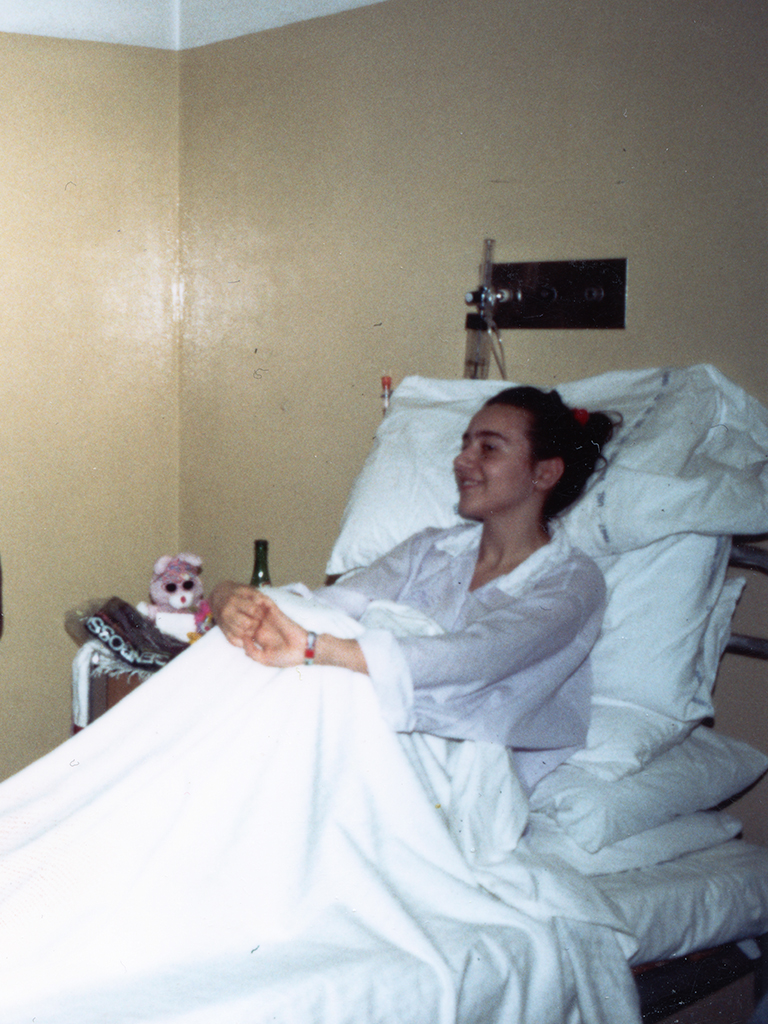



Maria Teresa continues:
“I remember that when we left Turin for Sassello, we stopped at a
highway reststop like we normally did. Chiara, who would usually go with
her father to get something, started to automatically get out of the
car, but she realized she could no longer do it, and with a normal tone
she said: “Oh yeah! I can’t walk anymore…” At those words I felt like I
was dying, and since I was sitting behind her, I reached forward and
put my hands on her shoulders and squeezed them, trying to suffocate my own pain”.
And dad Ruggero adds:
“Certainly she offered this pain to Jesus as well, such a precious moment
because there, in that moment she realized that she would never walk
again. This is something that struck me, because that was a very
difficult moment for us too; but seeing how she lived through it, we
couldn’t stay at our human level, made of sadness and worries for the
future, because she always wanted to stay in that dimension we could
define as human-divine, and she wanted to stay there with us.
What always helped us in those years was the presence of Jesus among us, trying to offer Him this suffering, the only way we knew how, the three
of us together, and each of us on our own: so that He would give us the
strength. And there was a serenity, a way of living in a supernatural
dimension: certain things happen, and you can’t understand them well.
But thinking back today we have to admit that for our family those were
the two years most blessed by God: because Jesus allowed us to live
something truly extraordinary, so extraordinary that we’re not able to
explain it”.
In June Chiara undergoes a second surgery: there is barely any hope. The
hospital stays in Turin become more frequent. The gen and many other
friends from the Movement take turns at the ‘Regina Margherita’ hospital
to support her and her family.
Treatment is painful. She wants to be informed of every detail of her
illness, and at every new, painful surprise, she never hesitates:
“For you, Jesus: if you want this, so do I!”
letters: to her she confides discoveries and darkness in her soul. The
founder of the Movement writes to her:
“God loves you immensely and wants to penetrate into the depths of your soul and make you experience drops of Heaven. Chiara Luce is the name I have chosen for you; do you like it? It is the light of the Ideal that conquers the world”.


Last times
With the worsening of her illness, the administration of morphine should be intensified, but Chiara Luce refuses:

On October 5th, although exhausted, she had time to say goodbye to the
many people that came by for an update, especially the youth, to whom
she feels she has to pass the baton, like at the Olympics, because, she
confides remembering Chiara Lubich’s words:
“The youth are the future: they have only one life and they must live it well”.
Soon after, she signals her mother to move closer to her:
“Mom, Ciao! Be happy, because I am”.
Dad Ruggero, on the other side of the bed, asks if the invitation is for
him too, and she nods with a smile. Those will be her last words, but
not her last act of love, because Chiara will donate her corneas, the
only part of her body not affected by the cancer.
Chiara Luce died at 4:10 AM on October 7th, 1990. At her funeral, celebrated by Bishop mons. Maritano, the musical groups Gen Rosso and Gen Verde sing the songs she chose: the church is packed with hundreds of youth, and almost the entire town is on the street that leads to the little cemetery, where she will be buried in the little family chapel; and there too, more singing and emotional tears.
Chiara Lubich had sent a large flower arrangement and a telegram to her parents:
“Let’s thank God for this luminous masterpiece”.
To deepen Chiara’s life, you can read the volume “In my Staying, Is Your Going The Life and thoughts of Chiara Luce Badano”.
“It will take away my lucidity and I can only offer Jesus my pain,” she says resolutely.
Her dad Ruggero is constantly impressed, almost in disbelief, also by
the determination and serenity that his daughter demonstrates in the
most difficult moments. Sometimes he goes as far as spying on her
through the keyhole, to be sure that her daughter is not playing a part
to make it a little ‘less painful’ for her parents: and she is there,
always serene, and sometimes he hears her singing.
One early morning her mother enters the hospital room where Chiara was hospitalized again:
“I go in, and seeing the terrible mess around the room, I immediately
understood that it had been a terrible night for her. Ruggero signals to
me to stay silent because Chiara seemed to have just fallen asleep. I
leaned on the wall, next to her, her face so pale that she seemed dead
already. I watch her in silence, but she had apparently realized that
her mom had arrived, and with a huge struggle, she tried to smile at me.
So I asked her what had happened, and she replied: “Everything, mom!
Everything! But you know, I didn’t waste a thing, not even – putting her
thumb and index finger together – not even this much pain. I offered
everything to Jesus”. So I turned to Ruggero and we really felt, looking
at each other, that we should have kneeled in front of this daughter of
ours: to admire and thank God for the wonders He was making in her soul”.
In another moment of particular physical suffering she confided to her mother:
“Jesus removes my stains with bleach to remove even blackheads,
bleach burns. So when I get to Heaven, I will be as white as snow”. And again: “See, I have nothing left, but I still have my heart and with that I can still love”.
Don Lino, the assistant pastor, brings the Eucharist to her every day:
for Chiara that is the most anticipated and important moment of her
days. She feels that the end is near. She prepares herself, and prepares
those around her. With her friend Chicca she chooses the songs that she
would like for her funeral. She wants it to be a party, and does not
neglect any detail: the flowers, the hairstyle, her parents’ outfits,
and her dress: white, like a wedding gown… To her mom she reveals:
“When I will have gone to Heaven, you and Dad will write the experience we have lived together and you will donate it to others”. At another time, she warns her: “When you get me ready, you will have to repeat – now Chiara Luce sees Jesus”






